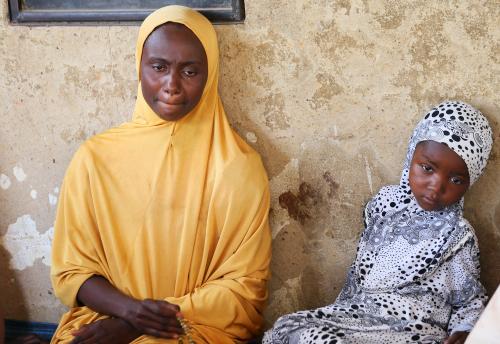INTRODUCTION
A polarized debate about the underlying causes of violent extremism in the Islamic world has taken place among western policymakers, analysts, and academics ever since the cataclysmic terrorist attacks of September 11, 2001. Broadly speaking, two major views have emerged. In one camp, the center-left maintains that the struggle against the root causes of terrorism should prioritize social and economic development. Inspired by modernization theory, this camp sees social and economic development as the precursor of democratization. It also considers educational and economic empowerment as the best antidote against radicalization and terrorist recruitment. Since poverty and ignorance often provide a breeding ground for radicalism, socioeconomic development appears compelling as an effective antidote.
This correlation between socioeconomic deprivation and terrorism is strongly rejected by a second group of analysts. Their logic is simple: most terrorists are neither poor nor uneducated. In fact, the majority seem to come from middle class, ordinary backgrounds. Terrorism is therefore perceived almost exclusively as a ‘security threat’ with no discernible socioeconomic roots or links with deprivation. Not surprisingly, this second group defines the fight against Islamist terrorism with a single-minded focus on state actors, jihadist ideology, counter-intelligence, and coercive action.
Both camps make valid points. Yet, they also share important shortcomings. The root causes of terrorism and violent radicalism are extremely complex, multifaceted, and often intertwined. They resist simplification and easy categorization. It should therefore be stated from the outset that there is no unique panacea or simple formula to ‘end’ terrorism and radicalism. In the absence of ‘one size fits all’ measures, only a long-term and multipronged strategy, aimed at strengthening the institutional underpinnings of development, democracy, and security will achieve effective results.
Such a strategy will have to take into consideration the tension between the two camps outlined above. This article argues that the best way to bridge the important gap between the ‘development first’ camp and the ‘security first’ camp is to drop the notion of a ‘war against terror’ in favor of a ‘strategic campaign against radicalism.’ The tools with which to engage this long-term campaign will come to us by focusing on ‘human development’— not just economic growth—in countries where political, economic, and social conditions foment radicalism. In short, ‘fighting radicalism with human development’ should emerge as a new public narrative and long-term objective for a smarter effort at strategic counter-terrorism.



Commentary
Fighting Radicalism, not ‘Terrorism’: Root Causes of an International Actor Redefined
September 29, 2009